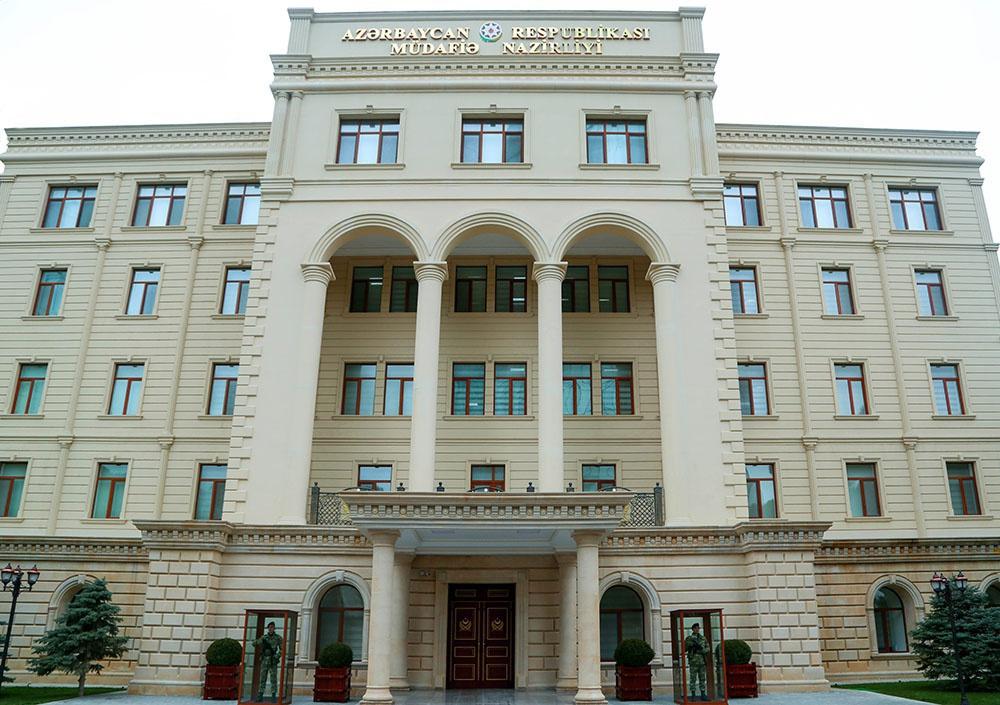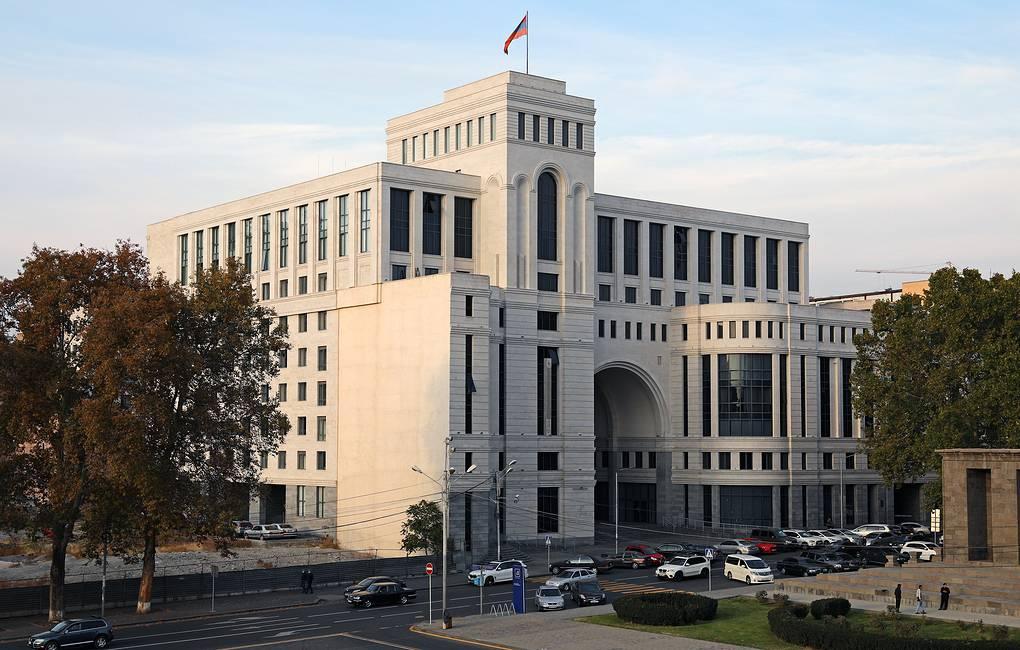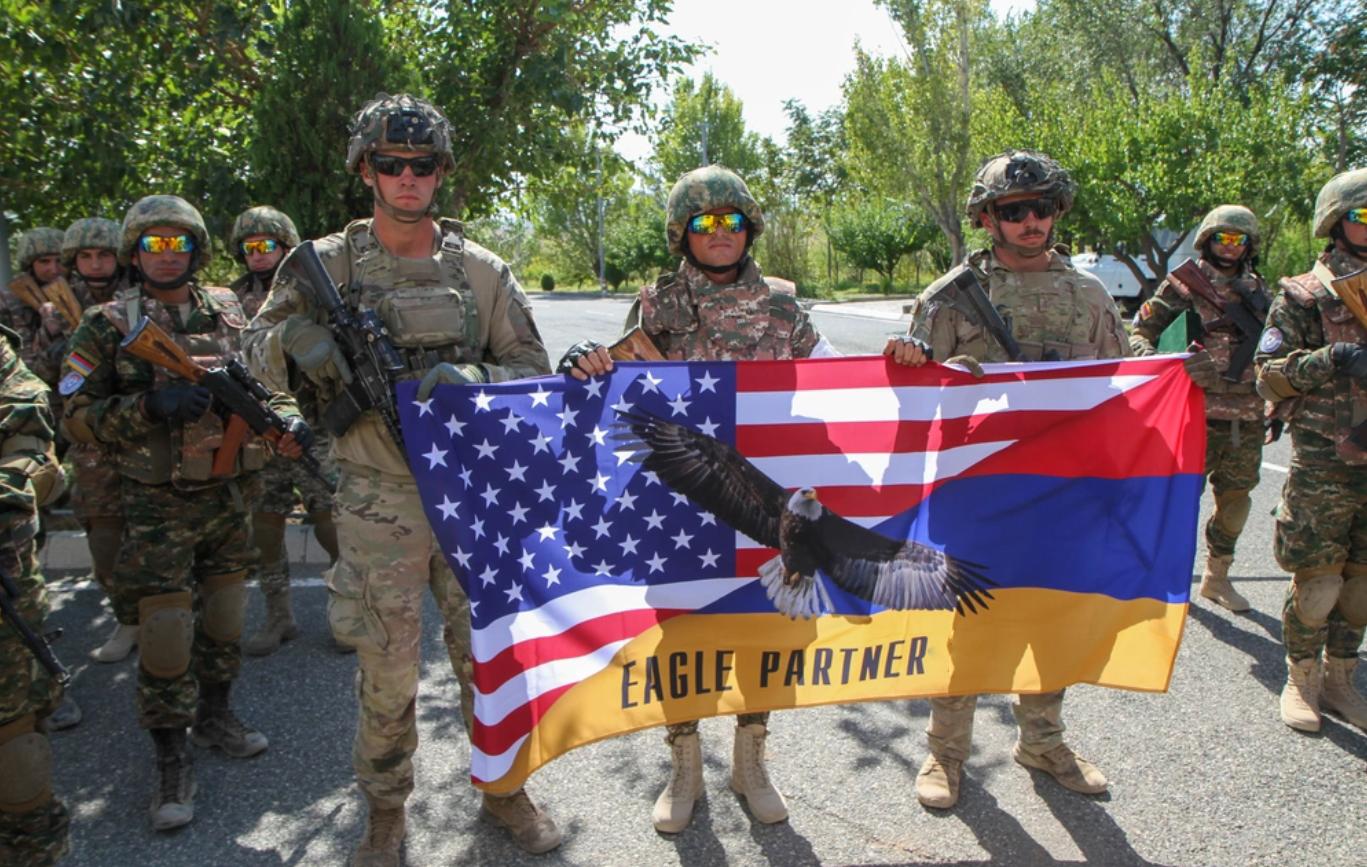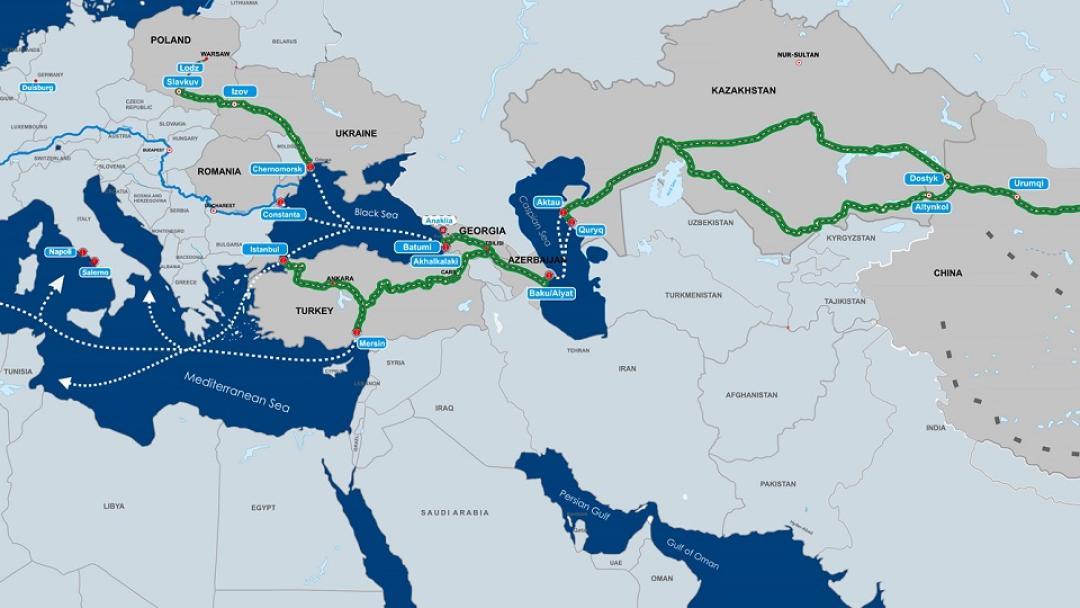The uncertain future of Armenia-Azerbaijan peace deal Grim outlook amid int’l interference
The post-war developments between Azerbaijan and Armenia remain precarious, with the recent exchanges between the two nations underscoring the ongoing tensions. Despite efforts to establish peace, the influence of external powers and internal dynamics has created a complex and unstable environment.
Azerbaijan’s statement & Armenia's response
The Azerbaijani Defence Ministry in a stern statement on July 25 blamed Armenia for recent provocations using heavy weapons to shell Kalbajar District and fling a reconnaissance drone near Tovuz District. These provocations are not isolated incidents but have become systematic.

Azerbaijan highlighted the role of external actors in exacerbating the situation, pointing to military exercises conducted by the United States in Armenia, the provision of lethal weapons by France, and the European Union's 10 million euro military aid under the European Peace Facility. These actions are seen as encouraging Armenia to prepare for another conflict against Azerbaijan.
The Azerbaijani Defence Ministry warns Armenia and its supporters to refrain from creating a new conflict zone in the South Caucasus. It asserts that if these provocations continue, Azerbaijan's Armed Forces will take necessary measures for self-defense. The ministry holds Armenia's military-political leadership and its supporters responsible for any escalation in the region.
In response, the Armenian Foreign Ministry dismissed the Azerbaijani Defence Ministry's accusations as “unfounded”. Armenia claims to have proposed, both publicly and through diplomatic channels, the creation of a joint mechanism with Azerbaijan to investigate border incidents and share information, which “Azerbaijan has not responded to”. Armenia argues that such a mechanism would prevent misinformation and clarify situations.

Armenia rejects “the rhetoric of escalation and maintains its commitment to the peace agenda”. The Armenian Foreign Ministry asserts that its army reforms and the acquisition of weapons are solely for the protection of its internationally recognized territory, per international law. Armenia also reiterates its proposal for mutual arms control and the signing of a corresponding agreement, which “remains unanswered by Azerbaijan”.
These statements reflect the ongoing tensions and mutual accusations between Azerbaijan and Armenia. Azerbaijan accuses Armenia of systematic provocations and criticizes the involvement of external powers in bolstering Armenia's military capabilities. In contrast, Armenia denies these provocations and emphasizes its commitment to peace, while accusing Azerbaijan of ignoring proposals for mechanisms to prevent conflicts. This dynamic illustrates the challenges in achieving a peaceful resolution and highlights the broader geopolitical implications involving external actors.
External influences and their consequences
One of the critical factors exacerbating the situation is the involvement of external actors. French President Macron's intervention has been inappropriate and one-sided, favoring Armenia and undermining the peace process. His actions have contributed to the rising tensions, casting doubt on the prospects for a lasting peace.
The supply of weapons from France and India to Armenia along with the recent military drills, codenamed "Eagle Partner" involving the US have further complicated the situation. These developments have led to a perception that external powers are fueling the conflict rather than facilitating peace.

The Armenian diaspora has always played a detrimental role in the now-former Karabakh conflict and is now pursuing the same role in preventing the signing of a peace accord in concert with mercenary politicians and groups, receiving paychecks from the diaspora to spearhead international campaigns against Azerbaijan.
Reports indicate that various diaspora organizations, along with dubious figures like Luis Ocampo, have been orchestrating efforts to undermine Azerbaijan’s position. Ocampo, posing as a climate activist, has called on Armenians to rally against Azerbaijan’s efforts, particularly ahead of the COP29 conference. This campaign might add another layer of complexity to the conflict and the first signs would be obvious as we approach November 2024.
The European Union's provision of 10 million euros in military aid to Armenia under the European Peace Facility has been viewed as a provocative move. Baku sees the aid as encouraging Armenia to engage in further provocations against Azerbaijan. Recent incidents, such as the shelling of Azerbaijan's Kalbacar District and the flying of a reconnaissance drone near Tovuz District, underscore Armenia’s readiness to escalate the conflict and these steps were taken exactly after a series of events in Armenia with the West’s backing.
The strategic importance of the Zangazur Corridor
Amid all-out developments, the Zangazur Corridor emerges as a pivotal point in the Azerbaijan-Armenia conflict. This strategic route is crucial for the economic and commercial interests of multiple powers, including Russia, the USA, and the EU. Azerbaijan’s control over the corridor is vital for regional stability and economic integration.
The corridor's significance has made it a focal point of contention among global powers. Experts argue that the USA and the EU seek to exclude Russia from the South Caucasus to control the corridor and integrate it into a broader economic route stretching from Europe to Central Asia and further to China. This strategic plan aims to create a vast commercial corridor that bypasses Russian and Chinese influence.
Azerbaijan has been skillfully navigating the competing interests of Western powers and Russia. Baku has resisted Western pressure to relinquish control over the Zangazur Corridor while maintaining normal relations with the Kremlin. This balancing act highlights Azerbaijan’s strategic approach to safeguarding its national interests amid the geopolitical rivalry.

Azerbaijan's firm stance on the Zangazur Corridor is driven by its strategic importance. The November 10 tripartite agreement, which formalized the corridor’s status, remains crucial for Azerbaijan. Baku has resisted attempts by Western powers to undermine this agreement, emphasizing the need to consider its national interests in any regional arrangements.
The involvement of the United States and the European Union in the South Caucasus is part of a broader geopolitical strategy. They aim to control the region's transit routes and integrate them into a new economic order that excludes Russia and China. This strategy reflects the West's ambition to establish dominance over the South Caucasus, Caspian Sea, and Central Asia regions.
Despite the West’s efforts, Russia remains a formidable player in the region. The Kremlin has insisted on maintaining control over key routes, including the Zangazur Corridor. Russia's involvement is enshrined in the November 10 tripartite agreement, making it difficult for Western powers to achieve their strategic objectives without the Kremlin's cooperation.
The interplay of these factors suggests that the South Caucasus is at risk of renewed conflict. The strategic importance of the Zangazur Corridor and the involvement of global powers have created a volatile environment. The region's stability is undermined by the competing interests of Azerbaijan, Armenia, and external actors.
The path to peace between Azerbaijan and Armenia is fraught with challenges. The involvement of external powers, the strategic significance of the Zangazur Corridor, and the delicate balance of power in the South Caucasus all contribute to the complexity of the situation. While the prospect of a final peace agreement remains distant, the unfolding developments will continue to shape the region's future.
Experts in the region have offered various perspectives on the conflict. Some argue that the rivalry between global powers over the Zangazur Corridor is indicative of a broader struggle for control over strategic transit routes. Others suggest that the involvement of external actors has complicated the peace process, making it harder for Azerbaijan and Armenia to reach a final agreement.
For peace to be achieved, it is essential for all parties, including external actors, to engage in inclusive dialogue. This means addressing the concerns of both Azerbaijan and Armenia while considering the broader geopolitical context. A comprehensive approach that includes economic cooperation, security arrangements, and political dialogue is necessary to move toward a lasting peace.
The future of the South Caucasus
The South Caucasus remains a region in flux, with its future shaped by the interplay of local dynamics and global geopolitics. The outcome of the Azerbaijan-Armenia conflict will have significant implications for the broader region, affecting economic development, security, and international relations.
Regional powers, including Turkey and Iran, also play a critical role in the South Caucasus. Their involvement adds another layer of complexity to the conflict, influencing the strategic calculations of Azerbaijan and Armenia. The interactions between regional and global powers will continue to shape the region's trajectory.
The Azerbaijan-Armenia conflict is emblematic of the broader geopolitical struggles in the South Caucasus. The involvement of international actors, the strategic importance of the Zangazur Corridor, and the delicate balance of power create a complex and volatile environment. While the path to peace is fraught with challenges, a comprehensive and inclusive approach offers the best hope for a stable and prosperous regional future.








